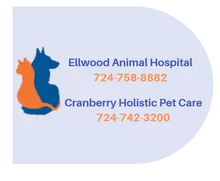If you love your pet, but not his odor, you aren't alone. A common reason for a vet appointment being scheduled is relates to a bad smell. Owners often state that they aren't sure where it is coming from. Before scheduling, products like breath mints, pet colognes and scented pet products are often tried.
There are many products made specifically to mask odors on the pet and in the home, including litter box additives, furniture sprays and carpet powders. Unfortunately, pet owners can spend lots of money of products without results. This happens because the source of the odor has not been addressed.
Offensive pet odors may come from:
1. Mouth,
2. Ears,
3. Skin,
4. Anal glands,
5. Infections,
6. Urine or bowel movement problems.
I strongly encourage clients to seek veterinary advice for the diagnosis and treatment of pet odors. Having a pet doesn’t mean you have to smell her before she gets near. Check your pet and home to pinpoint the source of a problem and then ask your vet for the best solution.
Oral Health: Avoid “doggy” and “kitty” breath by promoting oral hygiene in your pets, as early as possible. Take your pet to the veterinarian anytime he has bad breath and at least twice yearly for dental exams. Your veterinarian should check your pet’s mouth and teeth for tartar, gingivitis, growths, and tumors. Help keep teeth clean in between visits with regular brushing using pet-safe, non-xylitol containing paste. Foods and treats high in processed carbohydrates can promote bad breath, so ask your vet about the best diet. Chewing raw meat bones another good way to keep healthy teeth.
Ears: Ear infections cause lots of odors. Lift your pet's ear and take a whiff. If you smell something foul, head to the vet. Lots of clients waste money trying to mask ear odors or using ear mite medications which are inappropriate. Check with your vet about routine cleaning, and schedule an appointment to check for ear infections.
Skin/Coat: If you wait until your pet smells bad to bathe him, you've waited too long. Pets need regular baths to stay odor-free. The frequency for bathing our pets depends on different factors, such as coat, lifestyle and health (allergies and diet affect this). An active/outdoor dog needs to be bathed more frequently. To find out how often and with which products you should be bathing your pet, ask your vet. Some health conditions respond better to medicated shampoos, and special shampoos are made to be compatible with flea and tick products.
Grooming Needs: Besides daily brushing and frequent grooming necessary to keep pets' coats beautiful and free of mats, those with long coats need extra care, from top to bottom. Pets with long hair often have the problem of getting stool caught in their hair. Besides the problem with odor, this can cause more serious skin irritations and infections. To prevent this smelly and embarrassing problem from occurring, keep your pet’s bottom clean and trimmed. Many vets and offer “sanitary clips” that can keep this area healthy. Older pets should also stay trimmed in the private areas. If leakage or incontinence occurs, please bring it to your vet's attention, as many conditions are treatable.
Pet Waste Control: Pet waste clean-up is a necessary part of being a responsible pet owner. Clean up after your dog frequently to decrease yard odors, flies, environmental contamination/pollution, and messy land mines. Carry a bag on walks. Choose a high quality litter for your cat and scoop the litter box daily to encourage litter box use and control odors. For cats, 2 boxes per cat are recommended. Daily scooping prevents the need for strong odor masking litters.
Pet Waste "Accidents": Clean up pet messes immediately and use enzymatic odor neutralizers on carpets and furniture. Pets can get confused and will often soil in the same area if it isn't cleaned well. Ask your vet about the best products to keep on hand, as you can never predict when a case of diarrhea may occur from stressful noises like fireworks or a visitor slipping your pet some treats at a cookout.
Health Exams: Dental disease, ear infections, oral tumors, anal gland impactions, and skin infections are just a few of the diseases that can cause pet odors. If you detect a new pet odor, be sure to have your pet checked out by a veterinarian.
By following these tips you can share your home with your pet and visitors, comfortably.
